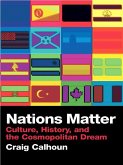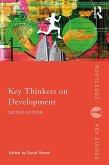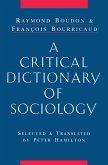46,95 €
46,95 €
inkl. MwSt.
Sofort per Download lieferbar

23 °P sammeln
46,95 €
Als Download kaufen

46,95 €
inkl. MwSt.
Sofort per Download lieferbar

23 °P sammeln
Jetzt verschenken
Alle Infos zum eBook verschenken
46,95 €
inkl. MwSt.
Sofort per Download lieferbar
Alle Infos zum eBook verschenken

23 °P sammeln
- Format: ePub
- Merkliste
- Auf die Merkliste
- Bewerten Bewerten
- Teilen
- Produkt teilen
- Produkterinnerung
- Produkterinnerung

Bitte loggen Sie sich zunächst in Ihr Kundenkonto ein oder registrieren Sie sich bei
bücher.de, um das eBook-Abo tolino select nutzen zu können.
Hier können Sie sich einloggen
Hier können Sie sich einloggen
Sie sind bereits eingeloggt. Klicken Sie auf 2. tolino select Abo, um fortzufahren.

Bitte loggen Sie sich zunächst in Ihr Kundenkonto ein oder registrieren Sie sich bei bücher.de, um das eBook-Abo tolino select nutzen zu können.
Talk of knowledge is ubiquitous in the modern world. Whether we talk of know-how, innovation or education, knowledge is always involved. But despite its prominence, knowledge often remains nebulous. This book explores the category of knowledge from a sociological perspective, and traces the concept of knowledge as the very fabric of modern society.
- Geräte: eReader
- mit Kopierschutz
- eBook Hilfe
- Größe: 0.45MB
Andere Kunden interessierten sich auch für
![Nations Matter (eBook, ePUB) Nations Matter (eBook, ePUB)]() Craig CalhounNations Matter (eBook, ePUB)41,95 €
Craig CalhounNations Matter (eBook, ePUB)41,95 €![Key Thinkers on Development (eBook, ePUB) Key Thinkers on Development (eBook, ePUB)]() Key Thinkers on Development (eBook, ePUB)28,95 €
Key Thinkers on Development (eBook, ePUB)28,95 €![Routledge International Handbook of Charisma (eBook, ePUB) Routledge International Handbook of Charisma (eBook, ePUB)]() Routledge International Handbook of Charisma (eBook, ePUB)48,95 €
Routledge International Handbook of Charisma (eBook, ePUB)48,95 €![A Critical Dictionary of Sociology (eBook, ePUB) A Critical Dictionary of Sociology (eBook, ePUB)]() Raymond BoudonA Critical Dictionary of Sociology (eBook, ePUB)52,95 €
Raymond BoudonA Critical Dictionary of Sociology (eBook, ePUB)52,95 €![Childhood (eBook, ePUB) Childhood (eBook, ePUB)]() David BohmChildhood (eBook, ePUB)40,95 €
David BohmChildhood (eBook, ePUB)40,95 €![Ordering Lives (eBook, ePUB) Ordering Lives (eBook, ePUB)]() Ordering Lives (eBook, ePUB)41,95 €
Ordering Lives (eBook, ePUB)41,95 €![Law and the Modern Mind (eBook, ePUB) Law and the Modern Mind (eBook, ePUB)]() Jerome FrankLaw and the Modern Mind (eBook, ePUB)53,95 €
Jerome FrankLaw and the Modern Mind (eBook, ePUB)53,95 €-
-
-
Talk of knowledge is ubiquitous in the modern world. Whether we talk of know-how, innovation or education, knowledge is always involved. But despite its prominence, knowledge often remains nebulous. This book explores the category of knowledge from a sociological perspective, and traces the concept of knowledge as the very fabric of modern society.
Dieser Download kann aus rechtlichen Gründen nur mit Rechnungsadresse in A, B, BG, CY, CZ, D, DK, EW, E, FIN, F, GR, HR, H, IRL, I, LT, L, LR, M, NL, PL, P, R, S, SLO, SK ausgeliefert werden.
Produktdetails
- Produktdetails
- Verlag: Taylor & Francis eBooks
- Seitenzahl: 326
- Erscheinungstermin: 22. September 2016
- Englisch
- ISBN-13: 9781134864874
- Artikelnr.: 45971227
- Verlag: Taylor & Francis eBooks
- Seitenzahl: 326
- Erscheinungstermin: 22. September 2016
- Englisch
- ISBN-13: 9781134864874
- Artikelnr.: 45971227
- Herstellerkennzeichnung Die Herstellerinformationen sind derzeit nicht verfügbar.
Marian Adolf is Professor of Media Culture at Zeppelin University. His research interest revolves around the interface of media and social change, communication and cultural theory. He has held appointments as Visiting Professor at Quest University and Alpen-Adria-University Klagenfurt, and currently serves as chair of the German Communication Association's section for Media Sociology.
Nico Stehr is Karl Mannheim Professor of Cultural Studies at Zeppelin University in Friedrichshafen Germany. He formerly held professorships at the University of Alberta, Edmonton, The University of British Columbia, Ludwig Maximilians University in Munich and was Paul F. Lazarsfeld Guest Professor at the University of Vienna. He has published widely on the topic of Knowledge and is one of the proponents of Knowledge Society, a term that has acquired widespread currency not only in academia.
Nico Stehr is Karl Mannheim Professor of Cultural Studies at Zeppelin University in Friedrichshafen Germany. He formerly held professorships at the University of Alberta, Edmonton, The University of British Columbia, Ludwig Maximilians University in Munich and was Paul F. Lazarsfeld Guest Professor at the University of Vienna. He has published widely on the topic of Knowledge and is one of the proponents of Knowledge Society, a term that has acquired widespread currency not only in academia.
Preface
Introduction
1. Classical Conceptions of Knowledge
2. Knowledge about Knowledge
2.1. Attributes of Knowledge
2.2. Knowledge as a Capacity to Act
2.3. Knowledge and Information
2.4. Practical Knowledge
2.5. Additional Knowledge
2.6. The Uneven Development of Knowledge
2.7. The Limits of the Growth of Knowledge
2.8. A Sociological Concept of Knowledge and its Context
3. The Knowledge of the Powerful
3.1. Knowledge is Power and Power is Knowledge
3.2. The Iron Law of Oligarchy
3.3. Knowledge/Power
3.4. The Global Class
4. Non-knowledge
4.1. Sigmund Freud and Friedrich August von Hayek
4.2. Observations about Non-Knowledge
4.3. Non-knowledge as a Myth?
4.4. Non-knowledge
4.5. Ignorance
4.6. Knowledge Gaps
4.7. Non-knowledge about Non-knowledge
5. Policing Knowledge
5.1. The Self-realization of Knowledge
5.2. The Self-protection of Knowledge
5.3. Knowledge becomes Superfluous
6. Forms of Knowledge
6.1. Everyday Knowledge
6.2. The Power of Everyday Knowledge
6.3. Indigenous or Traditional Knowledge
6.4. Tacit Knowledge
7. Global Knowledge
7.1. Basic Reflections on Global Knowledge
7.2. Global Knowledge Worlds
7.3. Structures of Global Knowledge Spaces
7.4. Forms of Global Knowledge Worlds
7.5. Attributes of Knowledge that Promote Globalization
7.6. Limits to the Globalization of Knowledge
7.7. The Project of Worldwide Worlds of Knowledge, and the Doubts about its Likelihood
8. Digital Worlds and Knowledge/Information
8.1. Information, Communication and Technology
8.2. Societal Communication and Shared Knowledge
8.3. Analyzing the Ubiquity of the Media: Mediatization
8.4. New Media, Old Media and the Hybrid Media System
8.5. ITC's, Surveillance and Knowledge
8.6. Communication, Media and Knowledge
9. Functions of Knowledge
9.1. Knowledge as Power and Authority
9.2. The Power of Ideas
9.3. Knowledge and the Economy
9.4. Knowledge as Property and Public Good
10. The Price of Knowledge
10.1. Human Capital
10.2. Symbolic Capital
10.3. Patents
10.4. Taxation
11. The Benefits of Knowledge
11.1. The Distribution of Knowledge
11.2 Knowledge, Power and Participation
11.3. The knowledge society
Bibliography
Index
Introduction
1. Classical Conceptions of Knowledge
2. Knowledge about Knowledge
2.1. Attributes of Knowledge
2.2. Knowledge as a Capacity to Act
2.3. Knowledge and Information
2.4. Practical Knowledge
2.5. Additional Knowledge
2.6. The Uneven Development of Knowledge
2.7. The Limits of the Growth of Knowledge
2.8. A Sociological Concept of Knowledge and its Context
3. The Knowledge of the Powerful
3.1. Knowledge is Power and Power is Knowledge
3.2. The Iron Law of Oligarchy
3.3. Knowledge/Power
3.4. The Global Class
4. Non-knowledge
4.1. Sigmund Freud and Friedrich August von Hayek
4.2. Observations about Non-Knowledge
4.3. Non-knowledge as a Myth?
4.4. Non-knowledge
4.5. Ignorance
4.6. Knowledge Gaps
4.7. Non-knowledge about Non-knowledge
5. Policing Knowledge
5.1. The Self-realization of Knowledge
5.2. The Self-protection of Knowledge
5.3. Knowledge becomes Superfluous
6. Forms of Knowledge
6.1. Everyday Knowledge
6.2. The Power of Everyday Knowledge
6.3. Indigenous or Traditional Knowledge
6.4. Tacit Knowledge
7. Global Knowledge
7.1. Basic Reflections on Global Knowledge
7.2. Global Knowledge Worlds
7.3. Structures of Global Knowledge Spaces
7.4. Forms of Global Knowledge Worlds
7.5. Attributes of Knowledge that Promote Globalization
7.6. Limits to the Globalization of Knowledge
7.7. The Project of Worldwide Worlds of Knowledge, and the Doubts about its Likelihood
8. Digital Worlds and Knowledge/Information
8.1. Information, Communication and Technology
8.2. Societal Communication and Shared Knowledge
8.3. Analyzing the Ubiquity of the Media: Mediatization
8.4. New Media, Old Media and the Hybrid Media System
8.5. ITC's, Surveillance and Knowledge
8.6. Communication, Media and Knowledge
9. Functions of Knowledge
9.1. Knowledge as Power and Authority
9.2. The Power of Ideas
9.3. Knowledge and the Economy
9.4. Knowledge as Property and Public Good
10. The Price of Knowledge
10.1. Human Capital
10.2. Symbolic Capital
10.3. Patents
10.4. Taxation
11. The Benefits of Knowledge
11.1. The Distribution of Knowledge
11.2 Knowledge, Power and Participation
11.3. The knowledge society
Bibliography
Index
Preface
Introduction
1. Classical Conceptions of Knowledge
2. Knowledge about Knowledge
2.1. Attributes of Knowledge
2.2. Knowledge as a Capacity to Act
2.3. Knowledge and Information
2.4. Practical Knowledge
2.5. Additional Knowledge
2.6. The Uneven Development of Knowledge
2.7. The Limits of the Growth of Knowledge
2.8. A Sociological Concept of Knowledge and its Context
3. The Knowledge of the Powerful
3.1. Knowledge is Power and Power is Knowledge
3.2. The Iron Law of Oligarchy
3.3. Knowledge/Power
3.4. The Global Class
4. Non-knowledge
4.1. Sigmund Freud and Friedrich August von Hayek
4.2. Observations about Non-Knowledge
4.3. Non-knowledge as a Myth?
4.4. Non-knowledge
4.5. Ignorance
4.6. Knowledge Gaps
4.7. Non-knowledge about Non-knowledge
5. Policing Knowledge
5.1. The Self-realization of Knowledge
5.2. The Self-protection of Knowledge
5.3. Knowledge becomes Superfluous
6. Forms of Knowledge
6.1. Everyday Knowledge
6.2. The Power of Everyday Knowledge
6.3. Indigenous or Traditional Knowledge
6.4. Tacit Knowledge
7. Global Knowledge
7.1. Basic Reflections on Global Knowledge
7.2. Global Knowledge Worlds
7.3. Structures of Global Knowledge Spaces
7.4. Forms of Global Knowledge Worlds
7.5. Attributes of Knowledge that Promote Globalization
7.6. Limits to the Globalization of Knowledge
7.7. The Project of Worldwide Worlds of Knowledge, and the Doubts about its Likelihood
8. Digital Worlds and Knowledge/Information
8.1. Information, Communication and Technology
8.2. Societal Communication and Shared Knowledge
8.3. Analyzing the Ubiquity of the Media: Mediatization
8.4. New Media, Old Media and the Hybrid Media System
8.5. ITC's, Surveillance and Knowledge
8.6. Communication, Media and Knowledge
9. Functions of Knowledge
9.1. Knowledge as Power and Authority
9.2. The Power of Ideas
9.3. Knowledge and the Economy
9.4. Knowledge as Property and Public Good
10. The Price of Knowledge
10.1. Human Capital
10.2. Symbolic Capital
10.3. Patents
10.4. Taxation
11. The Benefits of Knowledge
11.1. The Distribution of Knowledge
11.2 Knowledge, Power and Participation
11.3. The knowledge society
Bibliography
Index
Introduction
1. Classical Conceptions of Knowledge
2. Knowledge about Knowledge
2.1. Attributes of Knowledge
2.2. Knowledge as a Capacity to Act
2.3. Knowledge and Information
2.4. Practical Knowledge
2.5. Additional Knowledge
2.6. The Uneven Development of Knowledge
2.7. The Limits of the Growth of Knowledge
2.8. A Sociological Concept of Knowledge and its Context
3. The Knowledge of the Powerful
3.1. Knowledge is Power and Power is Knowledge
3.2. The Iron Law of Oligarchy
3.3. Knowledge/Power
3.4. The Global Class
4. Non-knowledge
4.1. Sigmund Freud and Friedrich August von Hayek
4.2. Observations about Non-Knowledge
4.3. Non-knowledge as a Myth?
4.4. Non-knowledge
4.5. Ignorance
4.6. Knowledge Gaps
4.7. Non-knowledge about Non-knowledge
5. Policing Knowledge
5.1. The Self-realization of Knowledge
5.2. The Self-protection of Knowledge
5.3. Knowledge becomes Superfluous
6. Forms of Knowledge
6.1. Everyday Knowledge
6.2. The Power of Everyday Knowledge
6.3. Indigenous or Traditional Knowledge
6.4. Tacit Knowledge
7. Global Knowledge
7.1. Basic Reflections on Global Knowledge
7.2. Global Knowledge Worlds
7.3. Structures of Global Knowledge Spaces
7.4. Forms of Global Knowledge Worlds
7.5. Attributes of Knowledge that Promote Globalization
7.6. Limits to the Globalization of Knowledge
7.7. The Project of Worldwide Worlds of Knowledge, and the Doubts about its Likelihood
8. Digital Worlds and Knowledge/Information
8.1. Information, Communication and Technology
8.2. Societal Communication and Shared Knowledge
8.3. Analyzing the Ubiquity of the Media: Mediatization
8.4. New Media, Old Media and the Hybrid Media System
8.5. ITC's, Surveillance and Knowledge
8.6. Communication, Media and Knowledge
9. Functions of Knowledge
9.1. Knowledge as Power and Authority
9.2. The Power of Ideas
9.3. Knowledge and the Economy
9.4. Knowledge as Property and Public Good
10. The Price of Knowledge
10.1. Human Capital
10.2. Symbolic Capital
10.3. Patents
10.4. Taxation
11. The Benefits of Knowledge
11.1. The Distribution of Knowledge
11.2 Knowledge, Power and Participation
11.3. The knowledge society
Bibliography
Index







